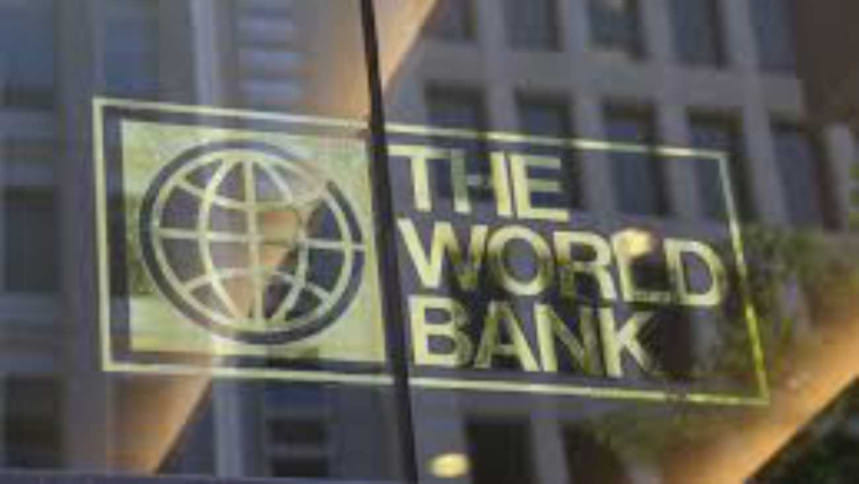Go slow to avoid fall into debt trap

Two eminent economists have called for a reform agenda for the next government from the international development partners, including the World Bank, to stave off brewing tension on various economic fronts.
The appeal came yesterday at the unveiling of the WB's latest report on the Bangladesh economy.
Called the Bangladesh Development Update, the Washington-based multilateral lender publishes it every three months and unveils it at its office in Dhaka.
This time, it invited two economists -- Ahsan H Mansur, executive director of the Policy Research Institute of Bangladesh, and Hossain Zillur Rahman, executive chairman of Power and Participation Research Centre -- to comment on the inferences of the report.
“I urge the World Bank and other international development partners to prepare for the post-election reform agenda for the government,” Mansur said.
He held forth on various economic concerns, including dwindling foreign exchange reserves, low revenue collection, flat export growth, unstable remittance inflows and financing for the ongoing mega projects.
One of the major causes for alarm is the balance of payment, which went into deficit last fiscal year for the first time since fiscal 2010-11.
“It cannot be forecast now when it will be positive again,” said the former International Monetary Fund economist.
Further indication of the perilous state of the external balance can be found in the foreign exchange reserves. Last year, it was equivalent to seven months' import bill; now it is sufficient to cover five months, he said.
And next year, it may plummet to three months' import bill. Any further plummeting of the forex reserves would get it in a red zone.
“So, here is a concern,” Mansur said while citing capital flight as one of the possible reasons for the dwindling foreign reserves.
At the end of August, foreign exchange reserves stood at $32.93 billion, according to Bangladesh Bank.
Furthermore, Bangladesh's export performance in the last several years has been rather disappointing if viewed from the perspective of export-GDP ratio.
If the export decreases in comparison to GDP, then it cannot be said that export is on the rise, he said.
In fiscal 2017-18, exports brought home $36.66 billion, up 5.25 percent year-on-year, according to data from the Export Promotion Bureau.
The other major source of foreign currency for the government, remittance, is not faring well either, according to Mansur.
“Remittance is still stuck at $14 billion to $15 billion. More than 1 million people have gone abroad with jobs, but why is remittance not increasing?”
The highest amount of remittance flew in fiscal 2014-15: $15.31 billion. And last fiscal year, expatriate Bangladeshis sent home $15 billion, up 17 percent year-on-year, according to data from the BB.
The financing of the various mega projects of the government has also piled on the pressure on the BoP, he said.
“Whether the cost of the projects is right and what their rate of return is, no correct analysis about those is available,” he said, while citing the Padma Bridge rail link projects as a case in point.
The current project cost for the Padma Bridge rail link is about Tk 40,000 crore. “It may increase to Tk 50,000 crore or Tk 60,000 crore. But none can say what its rate of economic return is.”
Typically, to finance mega projects with own funding, revenue collection needs to be augmented. But it has not been possible to raise revenue collection due to pressure from vested quarters, he said.
“If you cannot do that, better go slow rather than go fast and fall into a debt trap.”
Mansur also questioned the veracity of the 7.86 percent GDP growth recorded for fiscal 2017-18 by the Bangladesh Bureau of Statistics as private investment has been stagnant due to interest rate being sticky upwards.
Banks have been promising cuts in interest rates but they are yet to act on their word.
“If the GDP growth rate is genuine, it will be challenging to sustain it,” he added.
Hossain Zillur Rahman too doubts the near 8 percent GDP growth of fiscal 2017-18.
“Still, there are 4 crore people in the country who are poor. There is a mystery in the government statistics.”
Private investment is not rising but public investment is, he said.
Zillur, a former adviser to a caretaker government, wondered about the legitimacy of the increased public investment.
“Are the inflated costs of government projects increased public investment? The Padma Bridge is one bridge, not 10 bridges.”
He also questioned the viability of the government decision to build the Padma Bridge with own resources.
Like Mansur, he too fears that the country might fall into a debt trap in its quest to fund mega projects.
Reforms are urgent to achieve sustainable and inclusive economic development, but they do not seem to be coming through at all in Bangladesh, he added.
Qimiao Fan, WB country director for Bangladesh, Bhutan and Nepal, and Zahid Hussain, lead economist of the WB Dhaka office, also spoke at the event.

 For all latest news, follow The Daily Star's Google News channel.
For all latest news, follow The Daily Star's Google News channel. 



Comments